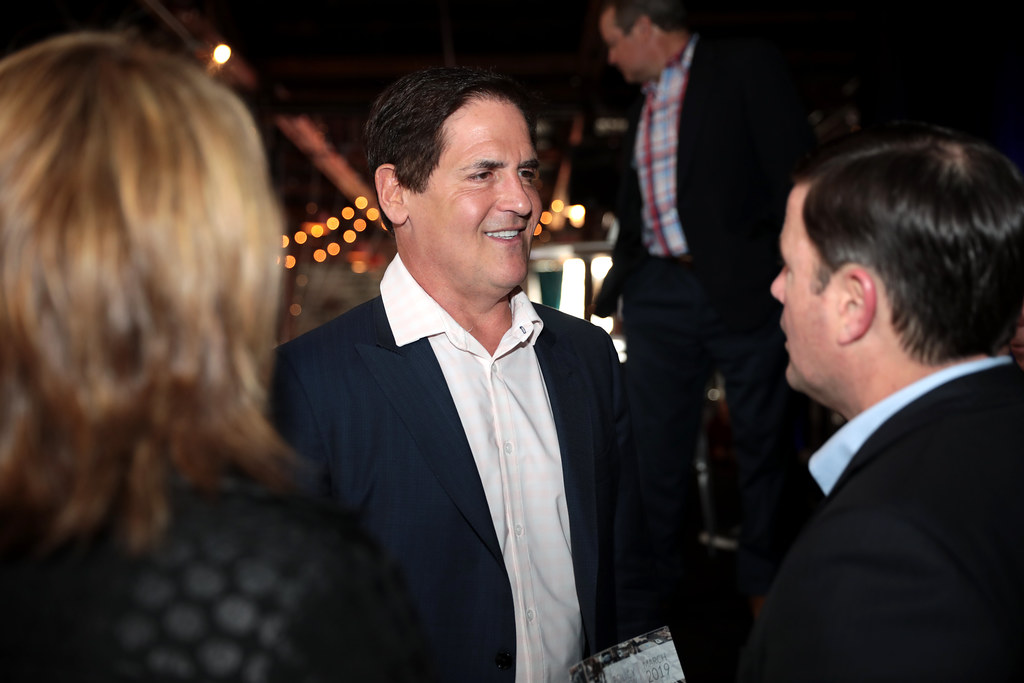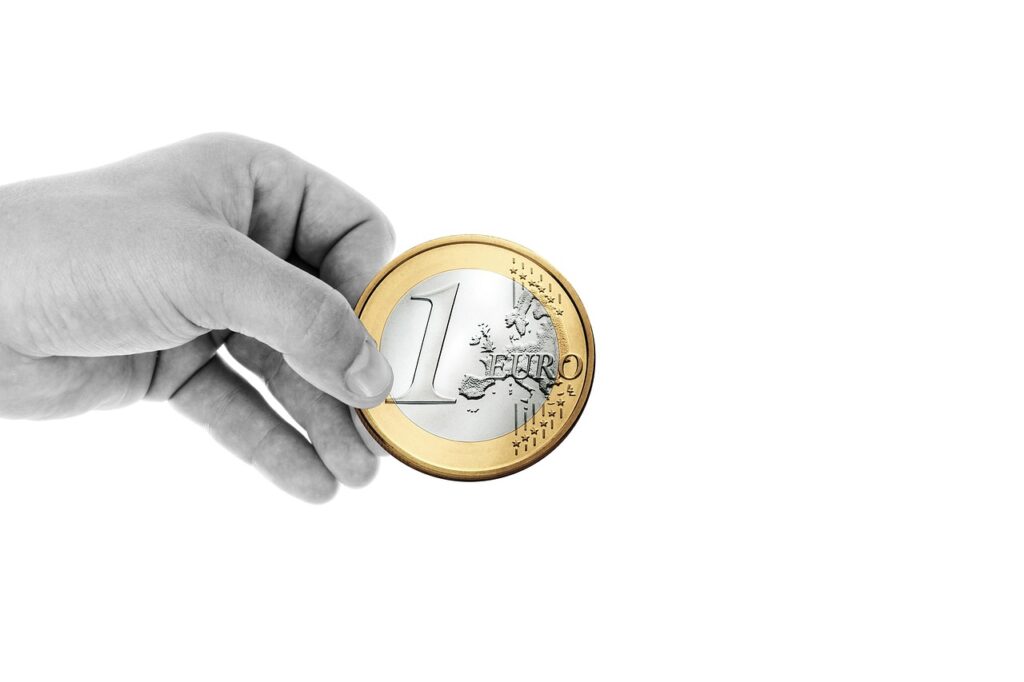
Mark Cuban, a name synonymous with entrepreneurial success and shrewd investing, has built a multi-billion-dollar empire on surprisingly straightforward financial principles. Far from complex algorithms or high-stakes gambles, his money rules often revolve around fundamental concepts like frugality, debt avoidance, and strategic, long-term thinking. For those approaching or already navigating retirement, these lessons are not just valuable; they are absolutely essential, offering a powerful shield against potential financial pitfalls.
Retirement brings a new financial landscape, often characterized by fixed incomes and the critical need to preserve and grow existing capital. Cuban’s insights, honed through years of building wealth from the ground up, provide a practical blueprint for retirees looking to secure their financial future. His advice isn’t about getting rich quick, but rather about cultivating the discipline and foresight necessary to ensure your hard-earned savings last and even flourish through your golden years.
We’re about to embark on an illuminating journey through some of Mark Cuban’s most impactful financial wisdom. These are not just theoretical musings from a billionaire; they are actionable strategies rooted in real-world experience, designed to empower you to make sound financial decisions. Let’s explore the first seven principles that can transform your approach to managing money in retirement.
1. **Live Below Your Means**Mark Cuban champions the timeless principle of living below your means, a discipline he embraced long before his billionaire status. He vividly recounts how, in his early days, he adopted a student-like lifestyle, driving old cars, sharing apartments, and subsisting on inexpensive meals. This foundational habit wasn’t just a temporary measure; it was a mindset that he credits with enabling his eventual financial success, showing that wealth accumulation often begins with conscious restriction rather than lavish spending.
Cuban’s philosophy is rooted in his early inspiration from a book titled “How to Retire at 35,” which posited that saving $1 million and living frugally could lead to early retirement. He found this premise deeply motivating, demonstrating that even ambitious financial goals are achievable with rigorous discipline in spending. For retirees on a fixed income, this advice becomes even more critical, as living within or below your means directly correlates with the longevity of your retirement funds.
It’s not always easy, especially for those with family obligations, but Cuban emphasizes that finding this discipline is paramount for savings. This isn’t just about cutting out a daily coffee; it’s about a holistic re-evaluation of major expenditures first, like housing and transportation, and then extending that scrutiny to your entire budget. By consistently spending less than you have, you create a buffer, a financial breathing room that is invaluable in retirement.
This deliberate practice ensures that you build a sustainable financial foundation, safeguarding against the unexpected and allowing your savings to serve their intended purpose without being depleted by unnecessary outgoings. It’s about making conscious choices today to protect your financial tranquility tomorrow, especially when the flexibility of earning more might be diminished.
Read more about: Desperate Dealers? 10 Trucks Drowning in Excess Inventory That Could Be Your Next Steal
2. **Avoid Credit Card Debt**Mark Cuban is remarkably firm in his stance against credit card debt, especially for individuals not in an already strong financial position. He openly shared his personal struggles with credit cards, admitting, “I would charge something and think I would be able to pay it off and then not be able to.” This personal experience underscores the potent trap of high-interest debt, even for someone who would later become a financial titan.
His aversion stems from the exorbitant interest rates—often 18%, 20%, or even 30%—that credit cards carry. As he explains, these rates “are going to cost you a lot more than you could ever earn anywhere else.” This brutal truth highlights how quickly credit card interest can erode savings and stifle wealth accumulation, making it a significant threat to financial stability, particularly for retirees relying on a finite pool of funds.
While Cuban acknowledges that credit cards can be a valuable tool for building credit, he stresses that this benefit only holds true if you pay off the balance in full each month. The discipline required to manage credit cards effectively is considerable. For retirees, the safest approach might involve sticking to debit or cash transactions to entirely sidestep the risk of accumulating interest charges that could significantly drain vital retirement savings.
Therefore, his advice serves as a potent warning: if you lack the absolute confidence to pay off your credit card balance monthly, it’s far wiser to avoid them altogether. The goal is to prevent any unnecessary outflow of capital, ensuring your retirement funds remain secure and work for you, not against you through compounding interest.
Read more about: The Unfiltered Truth: Dame Dash Unleashes Bombshell Revelations on Jay-Z, R. Kelly, and Aaliyah’s Shadowy Past
3. **Build a Strong Emergency Fund**Before even contemplating investments, Mark Cuban consistently advocates for establishing a robust safety net: a strong emergency fund. This isn’t just good advice; it’s a non-negotiable prerequisite for sound financial health, designed to protect you from life’s inevitable uncertainties without derailing your long-term plans. As he once told Vanity Fair, reported by CNBC, you need “at least six months’ income.”
This crucial buffer ensures that if you face an unexpected job loss, a necessary relocation, a medical emergency, or any other unforeseen crisis, you have the liquidity to manage it without resorting to high-interest debt or prematurely liquidating appreciating assets. For retirees, who may have fewer options for generating new income quickly, this fund is even more vital, acting as a financial shock absorber.
A well-funded emergency account provides immense peace of mind, allowing you to navigate difficult circumstances from a position of strength rather than desperation. It prevents a cascading effect where one financial setback leads to another, preserving your dignity and your financial integrity. This fund should ideally be easily accessible but separate from your daily spending accounts.
Cuban’s emphasis on this foundational step highlights a disciplined approach to financial planning: secure your present stability before aggressively pursuing future growth. This strategic sequence ensures that your investment journey is built on solid ground, capable of weathering storms without jeopardizing your overall financial well-being.
Read more about: The King’s Highway: Charting Elvis Presley’s Revolutionary Ride Through Music History
4. **Investing in Appreciating Assets is the Best Way to Build Wealth**According to Mark Cuban, once you have your emergency fund in place and are managing debt, the most effective path to building wealth is through “appreciating assets.” This is the core of his wealth-building philosophy, advocating for investments that inherently grow in value over the long term, rather than depreciating or stagnant holdings. It’s about putting your money to work in ways that generate genuine economic growth.
He provides several clear examples of such assets. Real estate, for instance, including houses, apartments, and commercial buildings, has a historical tendency to appreciate over time. Cuban himself boasts a significant property portfolio, including Dallas mansions and a Trump International Hotel and Tower condo, illustrating his belief in this asset class. For retirees, strategic real estate investments can provide both capital appreciation and potential income streams.
Beyond physical property, traditional market investments like stocks, bonds, and Exchange Traded Funds (ETFs) are also key appreciating assets. These can increase in value as the underlying companies or sectors perform well and expand. Bonds, specifically, can grow if interest rates decline or if the issuer’s financial health improves. Cuban recommends that for public companies, individuals should generally focus on investing in funds rather than individual stocks, acknowledging the increased difficulty of selecting individual winners in today’s market.
Notably, Cuban is also a significant supporter of cryptocurrency, seeing digital currencies like Bitcoin and Ethereum as powerful appreciating assets that have shown substantial value growth in recent years. He has invested in these, along with Dogecoin, demonstrating his willingness to explore newer asset classes. The essence of his advice here is to identify and commit to assets that consistently work towards long-term capital appreciation, forming the bedrock of sustained wealth.
Read more about: Beyond the Sticker Price: Uncovering the True Financial Commitment of Car Ownership
5. **Spend on Your Future, Not Your Present**Mark Cuban’s journey from selling garbage bags at 12 to becoming a billionaire is a testament to his long-term vision. He consistently advocates for a spending philosophy centered on enriching your future rather than indulging immediate present desires. This isn’t just about saving; it’s about channeling your financial resources into actions and assets that will pay dividends down the line, creating a robust financial future.
He suggests that savers and investors should consciously skip expensive lunches, opt for inexpensive cars, and minimize spending on rent and other essential categories. This frugal approach, for Cuban, creates essential “financial overhead space.” This space is particularly crucial if you’re looking to launch a business or make significant investments, as it provides the capital and security needed to pursue future successes without immediate financial strain.
Cuban’s advice goes beyond the simplistic “cut out your morning Starbucks” cliché. He encourages a holistic view of your finances, focusing first on big-ticket items and then expanding to encompass the entirety of your budget. For example, he points out that the average American spends $348 per year on unused subscriptions, illustrating how simply stemming these larger “leaks” can open up significant new financial possibilities.
This principle reinforces the idea of delayed gratification as a powerful tool for wealth building. By resisting the urge to spend lavishly in the present, you strategically free up capital that can be invested, saved, or otherwise allocated to create a more secure and prosperous future. For retirees, this means extending the life of your nest egg and ensuring it continues to provide for you without being prematurely depleted.
Read more about: Desperate Dealers? 10 Trucks Drowning in Excess Inventory That Could Be Your Next Steal
6. **Leverage Your Money to Buy Time**While frugality is a cornerstone of Mark Cuban’s financial strategy, there’s a unique aspect he holds in even higher esteem: the strategic use of money to buy time. He candidly shared on Barbara Corcoran’s podcast, “I value my time a lot more than my next dollar.” This perspective reveals a profound understanding of time as a non-renewable, invaluable resource, especially as one enters retirement.
Cuban’s personal example of buying a private jet for faster transit highlights this principle on a grand scale, saving critical hours that would otherwise be lost in airport queues or layovers. While a private jet is certainly beyond the scope for most, the underlying concept is universally applicable: making strategic purchases that save time, even small ones, can significantly enhance your quality of life and productivity.
For instance, saving up to buy a reliable car instead of relying solely on public transportation can reclaim hours from daily commutes. Smaller, more accessible purchases can also be time savers: pre-cut vegetables at the grocery store can reduce meal prep time, or investing in services like TSA PreCheck or Global Entry can streamline travel, recapturing precious moments that would otherwise be spent waiting.
This advice encourages retirees to view certain expenditures not as indulgences, but as investments in their personal time and convenience. By strategically allocating funds to eliminate time-consuming chores or logistical hurdles, you free up hours to pursue hobbies, spend with loved ones, or simply relax, ultimately enriching your retirement experience and reflecting a deeper understanding of true wealth.
Read more about: Desperate Dealers? 10 Trucks Drowning in Excess Inventory That Could Be Your Next Steal
7. **Consider Community College in Your First Year or Two**Mark Cuban has offered a pragmatic approach to higher education costs, specifically targeting the initial years of university-level schooling. He points out that the first two years for most undergraduate students are often dominated by prerequisite and general education courses in subjects like math, science, and writing. These courses, while essential, can sometimes feel like an expensive continuation of high school’s structured curriculum.
Cuban’s suggestion is to bypass the high tuition fees of four-year universities for these initial requirements by enrolling in community college instead. Community colleges offer the same high standard of teaching and a wide array of course options, but at a significantly lower cost. Furthermore, many students live near a community college, which can drastically cut down on lifestyle expenses typically associated with living on a university campus, such as room and board.
By completing prerequisites and general education requirements at a community college for the first year or two, students can save a considerable amount of money. This strategy also provides a smoother transition into the increased workload and responsibilities of collegiate learning, preparing them for a more successful transfer to a four-year institution to complete their studies without the initial financial burden.
For retirees who might be supporting grandchildren or other family members through college, or even considering returning to education themselves, this tip offers a tangible way to conserve financial resources. It underscores Cuban’s overarching theme of making smart, cost-effective decisions that preserve capital and provide a strong foundation for future endeavors, without compromising on quality.” , “_words_section1”: “1997
Read more about: Why the Trail Went Cold: Tracing the Retreat of Country Firebrand Gretchen Wilson from the Limelight

8. **Try Negotiating with Cash**Mark Cuban presents a compelling argument for the often-overlooked power of cash transactions, particularly when compared to debit card spending. He contends that cash inherently offers a unique negotiating opportunity, a distinct advantage not typically present when one reaches for a plastic card. This perspective highlights Cuban’s constant search for value and deals, suggesting that simply having physical currency in hand can unlock avenues for savings that digital payments often obscure.
Cuban suggests that paying for services, in particular, creates a prime environment for honing your negotiation skills. For example, if you’re interested in joining a local yoga or pottery class, presenting cash can naturally lead to a discussion about a discount. He outlines a simple, yet effective, binary choice: if a class costs $20 and you arrive with $15, you create a situation where the service provider must either accept the reduced payment or receive nothing at all. Cuban posits that more often than not, people would prefer to take $15 than walk away with no payment for the service.
However, he also advises using this technique judiciously, recognizing that constantly haggling may not always be appropriate, especially with community business owners. The anxiety associated with these conversations often deters people from saving money, yet Cuban encourages overcoming this reluctance. By strategically employing cash negotiation, individuals, particularly retirees managing fixed incomes, can find unexpected ways to preserve capital and ensure their money stretches further.
Read more about: Desperate Dealers? 10 Trucks Drowning in Excess Inventory That Could Be Your Next Steal

9. **Invest in Books**A shared characteristic among many of the world’s most successful individuals, including Mark Cuban, is a profound commitment to reading. He views books not merely as entertainment but as exceptional teaching opportunities, each offering the potential to impart novel information that can contribute to success across a wide spectrum of future endeavors. This consistent engagement with literature is seen as a foundational practice for expanding one’s intellectual horizons and fostering continuous personal growth.
Reading, whether fiction or non-fiction, demonstrably broadens one’s mental landscape. Engaging with fictional narratives, readers develop empathy for characters, gaining deeper perspectives on universal human experiences and troubles that resonate in everyday life. Non-fiction, conversely, provides a comprehensive understanding of specific aspects of the physical world, offering insights into historical events, modern subjects, or complex concepts, thereby enriching one’s knowledge base and fostering innovative thinking.
This continuous intake of new information through reading empowers individuals to approach challenges with fresh perspectives. In the demanding realms of business, investing, and even routine daily tasks, a well-read mind is better equipped to think critically, solve problems, and adapt to new situations. For retirees, investing time in reading becomes an invaluable way to maintain cognitive sharpness, explore new interests, and keep their minds agile in an ever-evolving world.
Read more about: Charlie Kirk: An In-Depth Profile of the Right-Wing Activist and Trump Ally Who Died at 31
10. **Think Twice About Bank Loans**While acknowledging that avoiding loans isn’t always feasible, Mark Cuban is a strong proponent of limiting one’s exposure to external financial obligations, particularly the repayment of loans. He highlights how financing significant purchases can substantially dilute one’s ownership. While his immense wealth certainly makes it easier for him to avoid borrowed capital, the underlying principle holds significant weight for anyone contemplating a major financial commitment.
When considering a large acquisition, such as a home or a car, financing inherently translates into a larger overall personal expense due to interest payments. More critically, in the context of real estate investments or business purchases, taking on a loan can significantly cut into potential profits or even alter the strategic approach to a new opportunity. The capital used for loan repayments is capital that cannot be reinvested or utilized for growth.
Cuban emphasizes that monthly loan repayments can effectively hamstring one’s ability to focus on the primary goal, whether it’s business growth or a renovation project. Instead of dedicating full attention to big-picture initiatives, a significant portion of mental and financial energy becomes tied to generating enough income simply to cover repayments. For example, a home purchased for flipping would incur monthly bank payments, thereby reducing available cash for renovations and imposing a stress-inducing timeline on the project. The less one borrows, the greater the degree of true ownership and financial flexibility one can enjoy.
Read more about: The ‘Free’ Test Drive Illusion: Unmasking 14 Hidden Costs Dealers Don’t Want You to Know When Buying a Car
11. **Consider Savings in a Few General Buckets**Mark Cuban, aligning with common financial wisdom, advocates for saving for retirement and building emergency funds. However, he introduces a nuanced approach by suggesting that individuals think of their savings in distinct “buckets.” He provocatively states, “If you aren’t saving for retirement, you are saving for the moment you need cash… Buy and hold is a sucker’s game for you,” implying that non-retirement savings require a different strategic mindset and allocation.
Beyond the critical retirement and emergency savings pools, Cuban suggests a “third bucket” for other cash-building tasks—savings not earmarked for a particular long-term goal like a home, but rather for more immediate, flexible needs. This could encompass anything from installing a new garden area in the backyard to purchasing a new set of golf clubs for an upcoming season. These shorter-term, discretionary purchases benefit from a specific approach to cash management.
For these kinds of short-term savings, Cuban advises utilizing tools that offer both ease of contribution and withdrawal, while avoiding unnecessary complications at tax time or exposure to volatile market conditions. Short-term Certificates of Deposit (CDs) and interest-bearing savings accounts are ideal options. This strategy ensures that these funds are readily accessible when the need arises, without the entanglement of long-term investment commitments or significant market risk, providing practical liquidity for diverse personal aspirations.
Read more about: Is Your Ride on the Hit List? Unpacking America’s Top 10 Most Stolen Cars and How to Protect Yours
12. **Buy in Bulk**A universally applicable and highly effective piece of advice for conserving funds on everyday purchases, championed by Mark Cuban, is the practice of buying in bulk. Throughout one’s lifetime, countless disposable items, consumables, and food products—such as sponges, bars of soap, deodorant, meats, canned goods, and spices—are repeatedly purchased. Cuban strongly recommends acquiring these types of items in larger quantities whenever feasible.
The fundamental principle behind bulk buying is its consistent ability to yield lower prices per item. While the upfront cost of purchasing larger packages of goods may be higher, the cumulative savings accrued over time can be remarkably significant. Studies suggest that by strategically buying in bulk, consumers can realize savings of up to 35% compared to routine, smaller-quantity purchases across a wide array of products. This substantial reduction in per-unit cost makes it a powerful tool for budget optimization.
While individual budgetary constraints and available storage space will naturally influence the extent to which one can embrace bulk buying, the core lesson is broadly applicable. Instead of fixating solely on the retail price of a single bag of potatoes or a pack of socks, Cuban encourages consumers to calculate the price per pound or price per unit. This analytical approach empowers individuals to identify the best value size that aligns with their budget, ensuring that every dollar spent contributes maximally to long-term savings.
Read more about: Beyond the Circular: Deconstructing the ALDI Weekly Ad for the Savvy Shopper

13. **Always Prioritize Paying Off Debt**Mark Cuban diverges from some financial advisors who suggest balancing savings targets with debt reduction efforts. He firmly asserts that the incredibly high interest rates prevalent in consumer borrowing products, particularly credit cards, demand an undivided focus on debt elimination. These rates, often astronomically high, can quickly undermine any gains made through simultaneous savings or investments.
Cuban argues that attempting to save while carrying high-interest debt spreads one’s financial focus too thin and critically fails to address the root issue of the debt itself. The negative interest compounding on credit cards and most other significant lending products far outstrips the positive interest one can realistically expect to earn on savings and investments. This creates a perpetually negative financial balance, where debt effectively devours any incremental growth in savings.
Therefore, his imperative advice is to dedicate all available attention and resources to aggressively paying off high-interest debts first. Once these burdensome obligations are eliminated, individuals can then transition to a full-throated, unencumbered effort to build their investment portfolio. This sequential approach, to Cuban, yields a far more enriching and sustainable financial outcome, ensuring that capital works for you, rather than being siphoned away by punitive interest charges.
Read more about: Waylon Jennings: Riding the Storm, Forging an Outlaw Legacy in Country Music

14. **Don’t Splurge After a Bonus or Tax Refund**Mark Cuban, like many other successful entrepreneurs, takes a resolute stance against treating tax refunds and bonus checks as mere surplus spending money. He incisively points out that a tax refund is not a windfall, but rather the government returning an interest-free loan you provided throughout the year. The money, while a welcome boost, is already yours and should be viewed through a strategic financial lens.
Any significant increase in income, whether from a bonus check or a tax refund, should be predominantly, if not entirely, channeled towards advancing existing financial goals. These funds represent a potent surge of capital that can significantly accelerate progress towards savings targets or expedite debt reduction efforts already underway. Directing this cash towards high-interest credit card debts or substantial contributions to a retirement account can profoundly stabilize one’s financial circumstances over the long term.
A well-timed bonus check, for instance, might offer the opportunity to completely eliminate a credit card balance, thereby removing a recurring minimum payment requirement and the associated financial stress. Similarly, a tax refund can provide a substantial infusion into critical savings or retirement planning. Adopting a mindset that prioritizes moving closer to established financial goals, rather than indulging in immediate gratification, cultivates exceptional financial stewardship and fortifies one’s long-term security.

15. **Embrace Risk and Uncertainty**Mark Cuban views periods of economic hardship not as obstacles, but as a “twofold opportunity” for astute investors. During market downturns, investment assets are frequently devalued, presenting prime buying opportunities. Whether one’s interest lies in major technology stocks or banking industry assets, troubled economic times can offer a chance to acquire assets at artificially deflated prices, which can lead to substantial returns when the market inevitably recovers. Cuban unequivocally states, “Buying at discounted rates is one of the most important things you can do as an investor.”
He emphasizes that this strategy is not exclusively reserved for the ultra-wealthy; rather, it is a fundamental principle that every successful entrepreneur and investor, including himself, consistently employs by keeping a vigilant eye on the marketplace for undervalued assets poised for a rebound. Crucially, Cuban notes that many investors and aspiring business owners are often paralyzed by inaction during uncertain financial times, missing out on these opportune moments.
Cuban’s ultimate advice is to “embrace the risk and uncertainty” inherent in a volatile marketplace. Failure, he reminds us, is an ever-present possibility in both business and investing, irrespective of economic conditions. Therefore, the decision to pursue an investment opportunity should not be contingent upon “fair weather” in the market. Instead, he advocates for boldness: “Stormy seas often make for the best opportunities for those willing to bet on themselves.” By taking action when others hesitate, individuals can carve out a strong position, doubling down on their strengths while others are still attempting to establish a foothold later on.
***
Read more about: Rosa Roisinblit: A Century of Unyielding Truth-Seeking in Argentina’s Darkest Hour
Mark Cuban’s financial wisdom, while rooted in his journey to billionaire status, is remarkably accessible and profoundly actionable for retirees. His emphasis on discipline, strategic spending, astute investing, and a resilient mindset provides a robust framework for navigating the complexities of post-career finances. By embracing these principles, retirees can not only safeguard their nest egg but also cultivate a future of enduring financial stability and personal fulfillment, transforming potential challenges into powerful opportunities for sustained prosperity.













